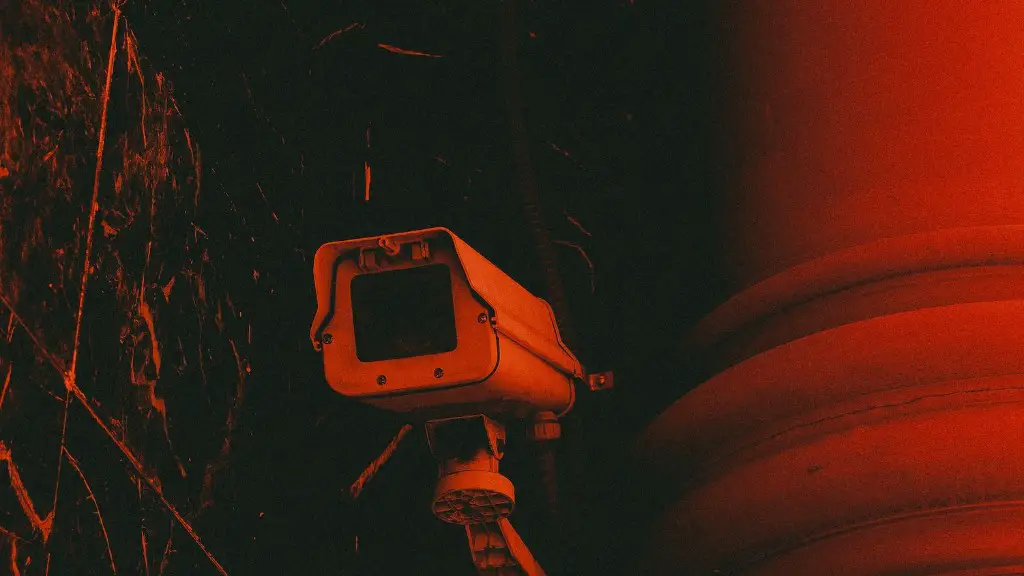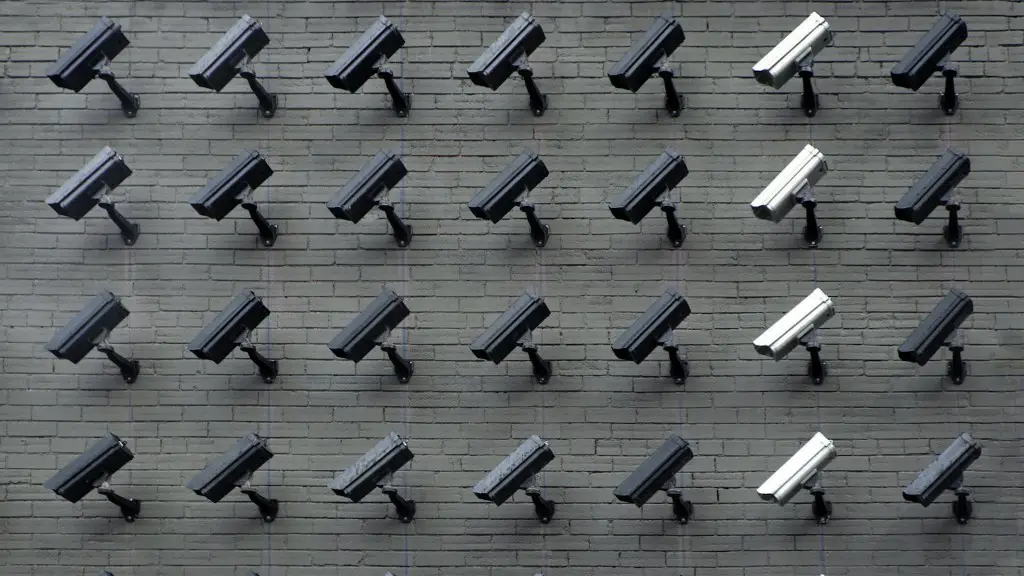The Central Intelligence Agency (CIA) was created on July 26, 1947 and is now the main foreign intelligence agency of the United States Government, taking over from the Office of Strategic Services which had dissolved earlier that year. At its inception it was given both limited diplomatic and economic powers as well as the task of collecting, analyzing and disseminating intelligence concerning foreign nations, their interests, and international affairs. Throughout its history, the CIA has been continually evolving and adapting to keep up with the times.
Since its establishment, the CIA has faced both criticism and controversy. At its beginning, some argued that the separation of intelligence operations from the rest of the government may have gone too far, while others argued that the CIA’s potential role as an independent arm of the government was not sufficiently limited. Since then, the CIA has faced ongoing scrutiny, with many questioning its level of secrecy and its use of more controversial tactics such as rendition and enhanced interrogation.
Modern day intelligence gathering involve a variety of methods, ranging from satellite and radio surveillance, to the recruitment of spies in foreign countries, to the use of sophisticated computer systems to analyze data. In terms of its own intelligence-gathering capability, the CIA relies mainly on personnel stationed in foreign countries; it also works with other intelligence agencies, such as the National Security Agency (NSA) and the Defense Intelligence Agency (DIA), to collect intelligence as well.
In addition to its primary role as a foreign intelligence agency, the CIA also has played a role in various international operations, such as helping to overthrow foreign governments, or carrying out covert operations such as supply weapons to foreign organizations or groups. Many of these activities have been highly controversial, particularly those that involve the overthrow of democratically-elected leaders.
In recent years, the CIA has been increasingly involved in counterterrorism activities, helping to disrupt terrorist networks across the world, as well as providing intelligence to help in the war on terror. The agency has also been heavily criticized for its involvement in the use of torture and its role in the US-led invasion of Iraq.
Today, the CIA remains one of the most powerful and important of the US government’s intelligence agencies. Though it has been subject to criticism from various sides, it is nonetheless responsible for providing important intelligence which helps the US to make better-informed decisions on issues related to national security.
Criticism of the CIA
The CIA has yet to escape criticism, with some raising questions regarding its ethical practices, the manner of their means and the level to which they account their operations to the US public. Since its establishment, books, films and other media outlets have portrayed the CIA as an organization unworthy of trust. Their lack of transparency can only be justified by their need to work in secret to guard the security of US interests, however questionable activities such as their involvement in government coups on foreign lands proves problematic in terms of garnering public opinion.
Despite the criticism received, some argue that the CIA requires its use of excessive secrecy in order to achieve the successful completion of its tasks. As for the covert operations and activities such as rendering and enhanced interrogation, there remains no resolution. While some argue that certain activities are of dire necessity for carrying out their duties, others point out the questionable ethics of such methods.
The CIA appears to be subject to a great deal of scrutiny in terms of its activities, and whether these are conducted legally and ethically, with many articles and media outlets presenting conflicting interpretations. There is, however, consensus that the CIA must be allowed to do its duties while facing increased public transparency and can still deliver what is required of it.
CIA Reform
Since the events of 9/11, the CIA has been assigned the task of countering terrorism, resulting in a reformation of their priorities, structure and management. The CIA was being caught off guard by the terrorists and in order to stay one step ahead, the CIA had to drastically increase its human and capital resources while modifying their organizational structure to meet the changing needs of intelligence. In this case, the CIA underwent reforms such as the National Clandestine Service (NCS) and the National Counterterrorism Center (NCTC).
NCS is responsible for manning traditional intelligence gathering activities such as spying and recruiting spies. The NCTC collects data and records from multiple government agencies such as the CIA and NSA and shares it among the agencies for further analysis. The CIA is undergoing drastic changes in order to accommodate the changing needs of modern day intelligence, for example, with the incorporation of the Cyber Intelligence Centre (CIC). The CIC was established to lead the way in the collection, analysis and sharing of foreign cyber intelligence.
The CIA has also been given an increased surveillance authority. Their powers have been raised significantly since their formation and to a certain degree, this has proven to have positive effects. In the wake of the 9/11 aftermath, the CIA, alongside other security forces, has been able to successfully thwart a number of attempts at attacks within and outside the US by way of surveillance. This shows the success of additional authority given to the CIA in particular.
CIA Training and Organization
The CIA has raised its standards in terms of training due to the changing needs of intelligence. Candidates designated for potentially dangerous missions abroad must now go through a rigorous and intensive five-month training program at “The Farm”, where they receive training in fieldcraft and foreign languages. The CIA also provides long-term career training for officers to develop their skills in the important areas of intelligence analysis and operations.
In terms of its organization, the CIA is divided into four main directorates: the National Clandestine Service (NCS), the Directorate of Intelligence (DI), the Directorate of Security (DS) and the Directorate of Science and Technology (DS&T). The DS&T oversees the CIA’s technology-intensive operations, developing better surveillance techniques, artificial intelligence and other cutting-edge projects such as the development of micro-drones.
The CIA also works regularly with other US government agencies to coordinate their activities and share information. For example, the CIA works particularly closely with the NSA, conducting joint operations and working together to post-analyze information collected.
CIA Today
The CIA remains to be a major government organization in terms of international security. In the modern world, the CIA’s capabilities have improved drastically and its operations now extend to many parts of the world. Its large quantity of assets, its analytical capacity and the fact that it is in close collaboration with the other US security agencies, embedded within its procedures links with many other organizations, all allowing it to gain access to data from numerous sources.
The CIA often finds itself part of news reports, either in regards to accusations of wrong-doing or the successful execution of intelligence operations. Despite this, the CIA remains an essential part of the US government, providing essential information needed by decision makers to make crucial security-based decisions.
CIA and Technology
As its mission has evolved, the CIA has had to keep up with evolving technologies, adapting them into its operations in order to gain an advantage. It has had a long-standing interest in advances in communications and computing, as well as classified technologies such as advanced surveillance or cyber-warfare capabilities. It is believed that the CIA was the first US intelligence agency to use advanced cryptography, such as the development of the Data Encryption Standard (DES). It also ventured into emerging computer technologies for intelligence gathering, such as the use of artificial intelligence for analyzing large data sets and developing more accurate models of the global environment.
The CIAs technical achievements have been extended to more conventional intelligence-gathering activities, such as the creation of a method of photographing a document without contact, called “pollen image photography,” or the deployment of unmanned aerial vehicles (UAVs), which can be used to conduct visual and audio surveillance, and of course, their more recent involvement in cyber-defense, using sophisticated techniques such as honeypots and border-control networks, while focusing on protection of US networks and the defense of the nation’s communication infrastructure.
Conclusion
Since its inception in 1947, the Central Intelligence Agency (CIA) has been an important part of the US government, tasked with collecting and analyzing intelligence regarding foreign nations and international affairs. The CIA has been subject to criticism and controversy for its lack of transparency and its involvement in questionable activities such as rendition and enhanced interrogation, though many argue that the CIA requires secrecy for their effective operation. The CIA has undertaken various reforms in order to meet the changing needs of intelligence, such as the creation of the National Clandestine Service and the National Counterterrorism Center, and increased surveillance authority. The CIA has kept up with technology, adapting it into its operations in order to gain an advantage, while continuing to work with other US security agencies to coordinate activities and share information. In conclusion, the CIA remains to be a major government organization and is essential in making security-based decisions.




